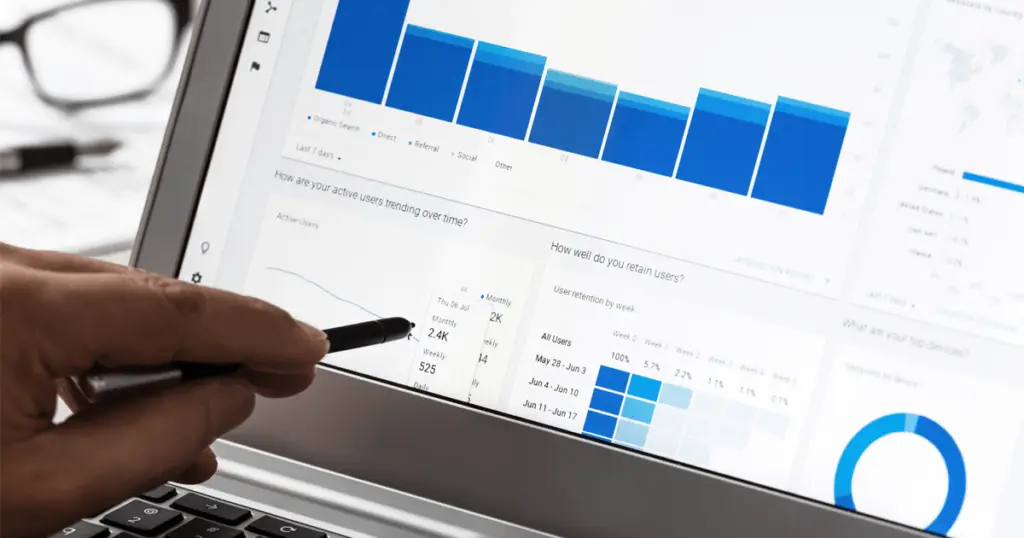Investing in a beautifully designed website is one thing. Getting it found by potential customers is another. If your clients want to attract more traffic to their website: what will you recommend?
Ranking well in organic search is key to bringing new customers to a website. This quick blog takes a look at 5 simple areas where your clients can focus in order to make sure their website is well-positioned to perform at its best in organic search.
1. Update meta descriptions
Meta descriptions are used to describe the contents of a web page and are displayed in search engine results under the title. To positively impact a website’s organic search ranking try the following: make sure the meta descriptions include keywords, match search queries, and encourage potential customers to click and find out more.

This example shows how your meta description shows in a search engine listing in relation to your title and URL.
For more help, read our blog Mastering your meta descriptions: a how to guide.
2. Use keywords to optimise headers for search
Keywords and phrases should appear in key locations across your client’s website. Prominent use of keywords and phrases ensures that search engines recognise a website’s ability to meet the needs of a search query.
Focus on including keywords and phrases in titles, headlines, and the alt-text for images. Encourage your clients to avoid large, unstructured blocks of content and instead use headlines to break information into small paragraphs. This will increase the opportunities to signpost to search engines the information that is being shared.

Our SEO Audit quickly identifies opportunities to improve organic performance. You receive a report and detailed action points.
3. Speed test your client’s website
Search engines reward fast websites with a higher position in organic search queries because customers like fast websites. To optimise a website’s performance it should be set up to load as quickly as possible – so potential customers are not kept waiting.
Once a website has been pushed live, it can slow it down if updates to images or content are not set up to be as quick as possible. Regular speed tests are a good way to test the initial performance of a website or make sure that your client is updating their own content correctly.
4. Don’t stop creating content
The best search engine performance comes from websites that are active. Active websites regularly update their content with new pages, fresh articles, and keyword-rich answers to questions that their customers are asking online.
Search engines will rank a website based on both its ability to answer search queries and how recently the content was loaded. While fresh content is always important, algorithms are smart enough to prioritise fresh content more where it matters: i.e. for time critical searches like cinema listings or train timetables.
5. Good hosting matters
Does your client know who’s providing their web hosting service? Having a good website hosting service can have a positive impact on the amount of traffic visiting a website.
A website hosting service should ideally keep plugins and any programmes or addons up-to-date as new versions are released. Any out-of-date software on a website can have a negative impact on organic search ranking.
Website hosting services can also provide important security services such as SSL certification. SSL certification is an important factor that’s considered when search engines choose which website to share in response to a search query. Find out more about the benefits of SSL Authentication here.
Sleep Easy with Website Hosting from caddie.
Including 24/7 customer service and technical support, one click restore in case of an outage, and nightly backups. Packages start from $55 per month excl GST.
If your clients want to attract more customers to their website; start by making sure they’re meeting the needs of the search engines. From meta descriptions and headers, to fresh content, security and speed. These 5 simple steps will help any website to perform better in organic search.
Need help identifying the opportunities? An SEO Audit can quickly highlight gaps in your client’s website that could be impacting their online performance. Or why not look more in depth with a full Website Physical that examines content, user experience and SEO and provides detailed recommendations in a comprehensive report. Contact us to find out more today.




